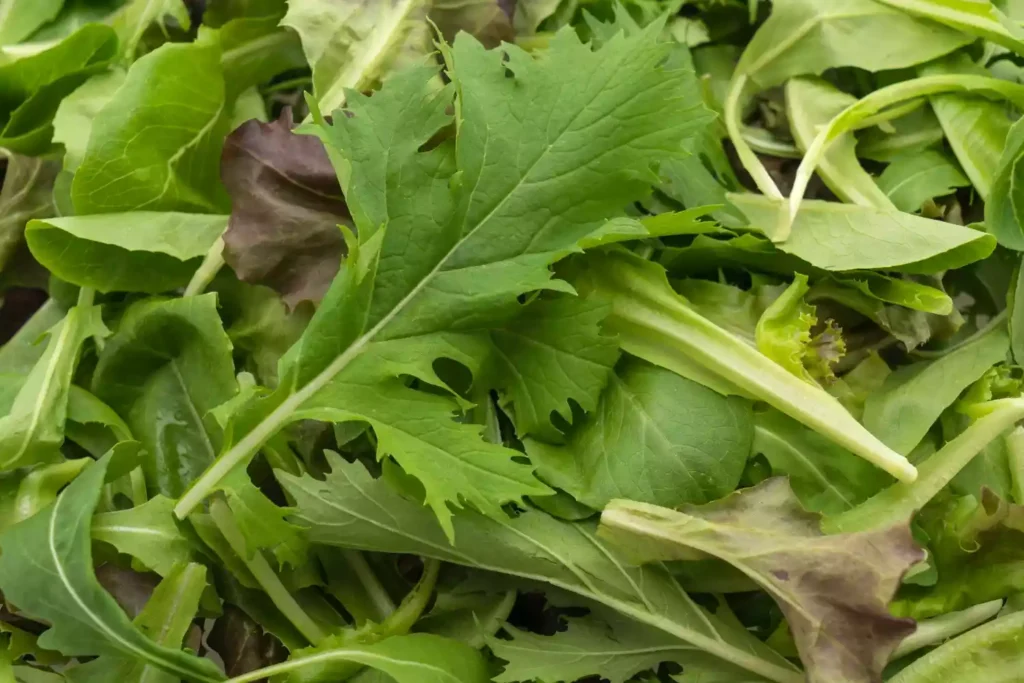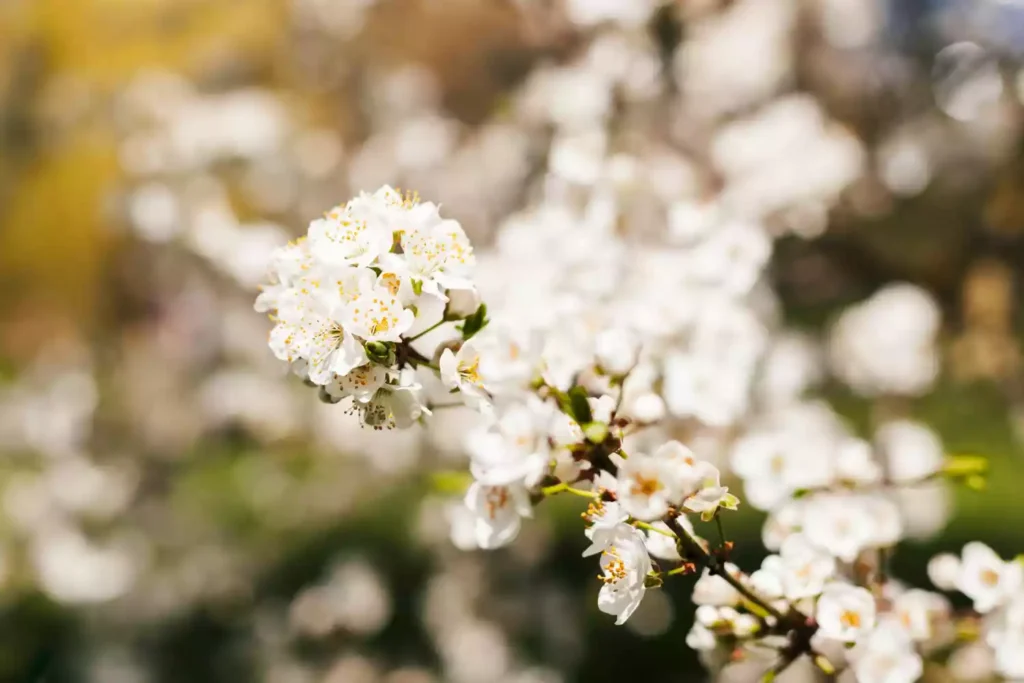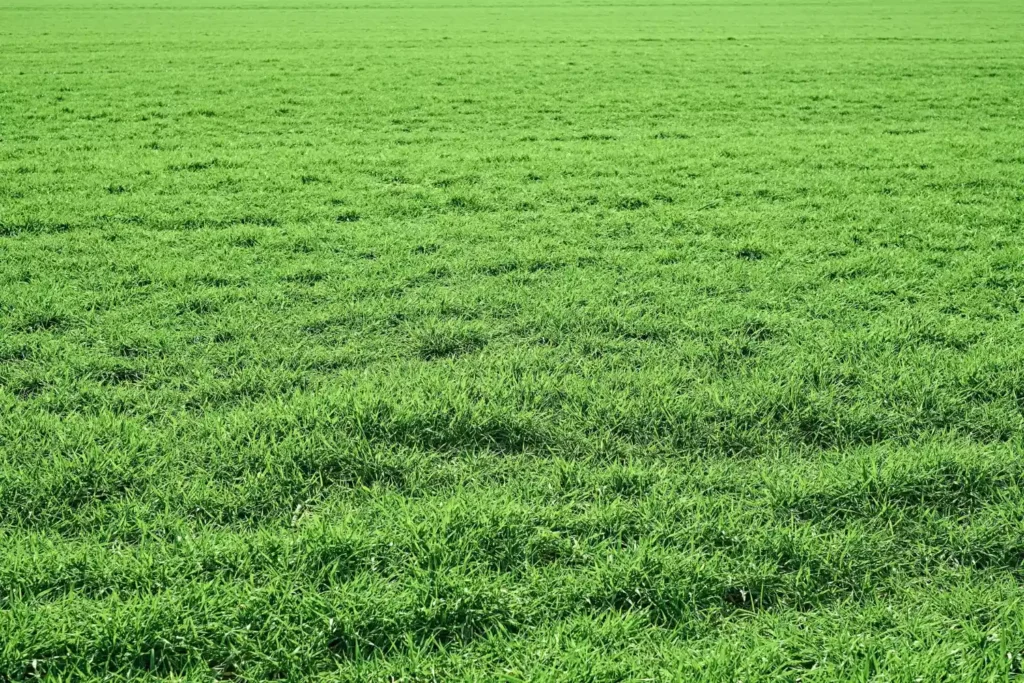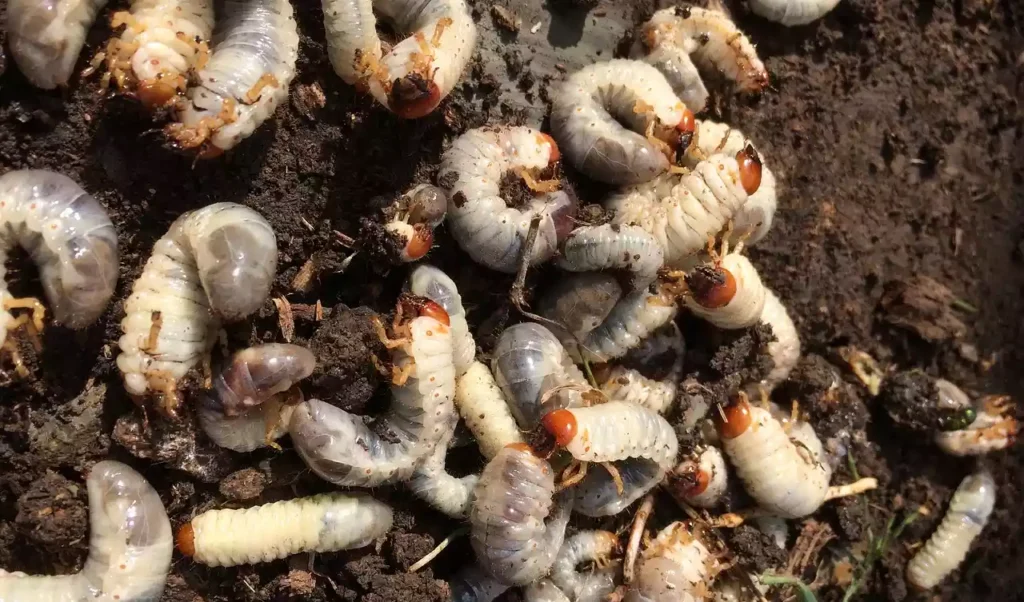Encountering ants in your compost pile can be frustrating. Fortunately, it’s not always bad news, as these creatures can benefit the composting process. Whether or not you should go to war with ants depends on a few factors. You’ll find out everything by reading on.
Ants can be very beneficial to your garden – in small numbers. They dig tunnels to aerate the soil. Some even protect caterpillar colonies for their “milk,” leading to more butterflies.
A lesser-known fact is that ants also help spread the seeds of flowering plants, assisting in the fertilization process. They also protect plants – peonies are a particular favorite – from insects that eat their leaves, eating or disturbing these pests.
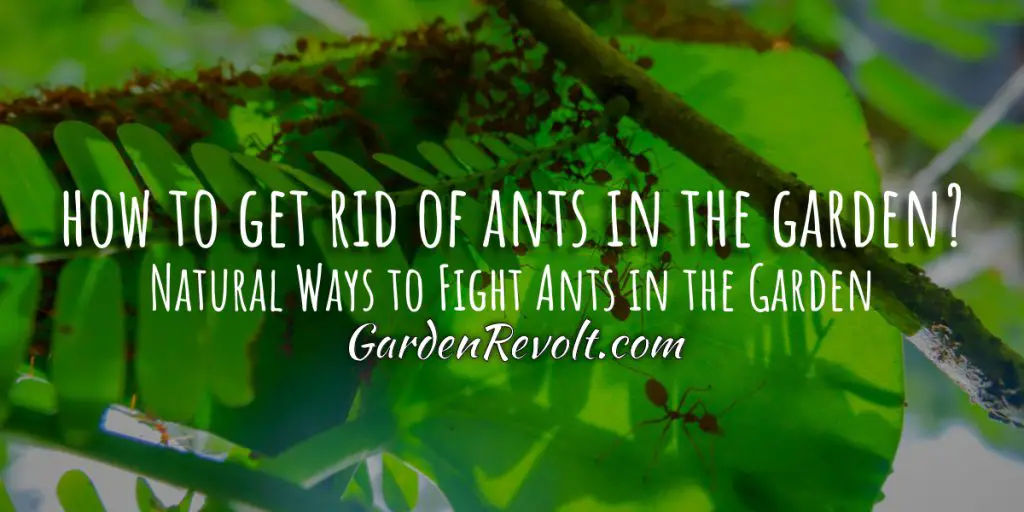
However, too many or the wrong species of ants can also cause problems. Finally, ants use and protect aphids, which are harmful to plant health. And it also happens that they bite the young shoots of plants to get to their shoots with nectar. Sometimes they also transmit fungal diseases from plant to plant. This is because they roam a lot.
Can there be ants in the compost pile?
Ants in compost can be very useful and a great addition to compost. In some moderation, of course. This is because:
- Ants introduce fungi, which contain important nutrients such as potassium and phosphorus.
- By digging tunnels, they aerate the compost, adding essential oxygen.
- They can prove helpful in other parts of the garden, as they eat many insects, eating plant leaves.
Ants have a balanced diet. While eating, they chew, shred and tear up waste. They search for materials such as weed seeds, fungi, plant debris, candy, and other insects in the compost pile. They shred these ingredients and make it easier for microbes to do their job at the same time.
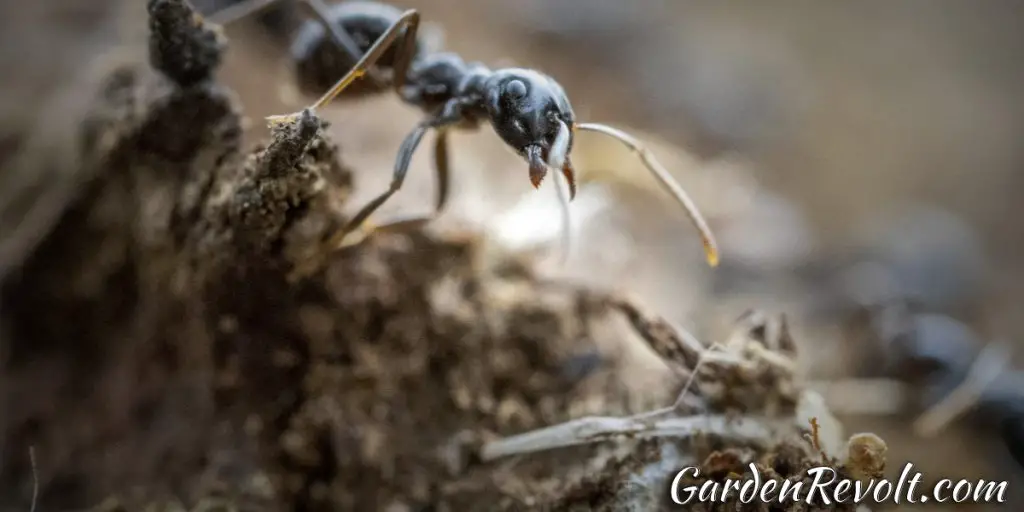
Eating scraps from the kitchen and garden, the ants create their feces and add them to the compost pile. Bacteria digest the ant feces and create additional nutrients inside the compost. In essence, you will get ant waste that will enrich your compost.
In addition, they clean the corridors throughout the pile. As they move around, they break down the green and brown materials. That allows the microbes to get smaller pieces of scraps and deal with them faster.
Usually, the ants inside the compost do not kill the earthworms. However, they can contribute to their extinction by eating too much of their food. Sometimes they also kill small and young worms and take their eggs to their nests – to eat them. Although many ants feed mainly on plants, some ant species are omnivorous.
In general, it’s best to keep ants out of your compost if you’re intentionally allowing compost earthworms (such as California earthworms) into your compost. Earthworms are useful in compost piles so it’s a good idea to make sure they are safe and well-fed.
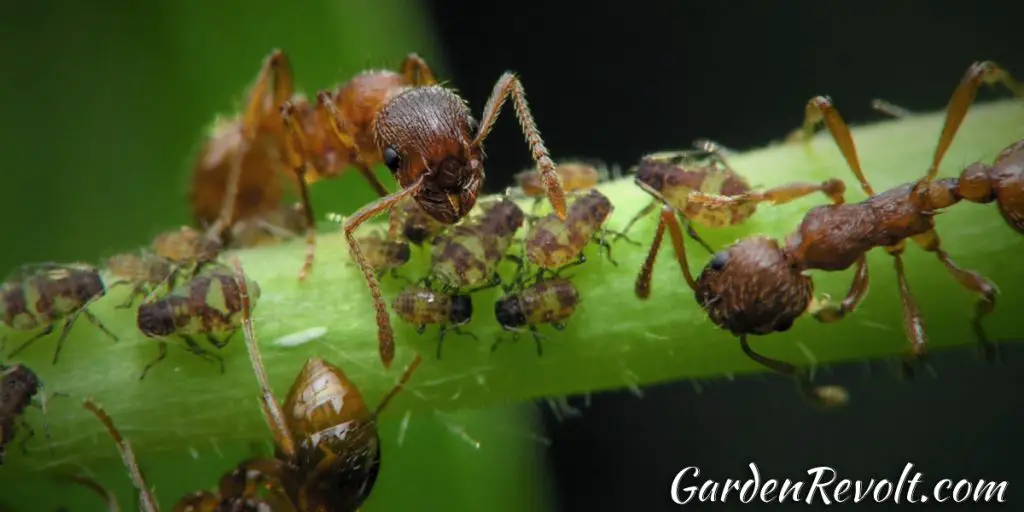
When Do Ants In Compost Become a Problem?
- A flock of ants in a compost pile that is too numerous will make using the compost a hassle.
- The ants protect the harmful aphids so they can consume their sweet honeydew.
- Because ants feed on food scraps, they can reduce the effectiveness of vermicomposters by eating too much worm food. In addition, some types of ants may eat compost earthworms and other worms.
- Ants in the compost may be a sign that the compost is too dry to work effectively. It may contain too much “brown” material, such as sticks, twigs, straw, and cardboard.
A must read if you got a surplus of fruit flies and insects in your composter: “How to get rid of flies in a composter? (10 Handy Hints!)“.
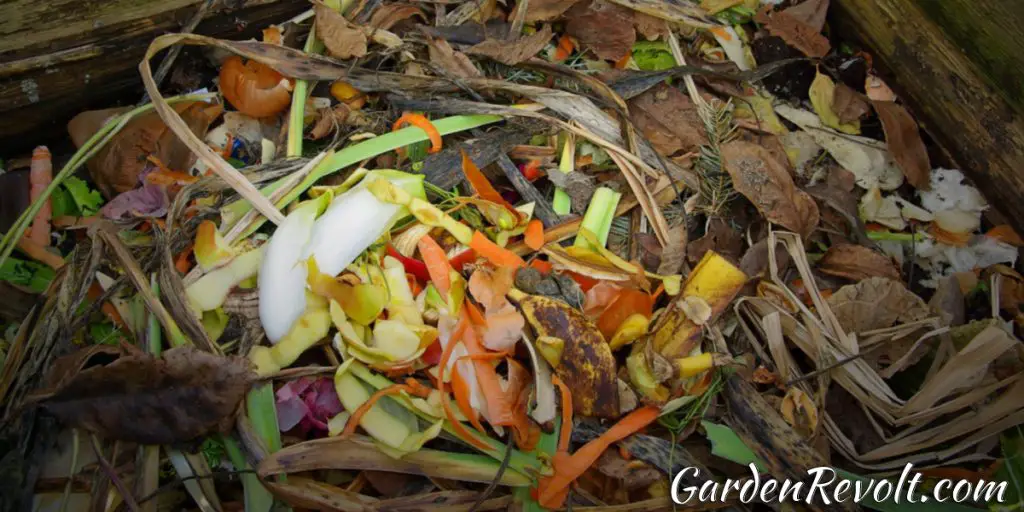
How to eliminate ants in the compost pile?
To control too many ants in your compost, you can try several different solutions, such as:
- Raise the temperature – since ants like temperatures around 68-77°F (20-25°C), it’s a good idea to warm up your compost pile a bit more. Put plastic wrap over the pile to retain the heat that is naturally generated or, if you have a rotary composter or container, expose it to the sun. When the compost reaches a temperature of 140-160°F (60-70°C), pull off the plastic wrap or move it back to where it belongs.
- Increase moisture levels – ants like a dry environment. If your compost is not moist enough, ants will be eager to establish their colony in it. Water your compost with a garden hose set to the gentlest sprinkling several times a week. Of course, it shouldn’t be very wet, but it should be moist enough for a handful of compost to stick together if you squeeze it. It is recommended to keep the compost between 40% and 60% moisture for best results.
- Turn the compost over more often with a pitchfork or shovel – especially after adding fresh scraps. Ants are attracted to the smell of fresh and rotting food, so burying it in the compost helps reduce the aroma. As an added benefit, it also disrupts colonies of ants already gracing the compost pile. That encourages them to set up a new nest elsewhere.
- Flood the ant cluster with boiling water – boiling water in the compost will not do any damage, but in the garden, boiling water can destroy roots and plants close by.
- Install sticky traps – a good way if you use a ready-made compost bin (such as a container or rotary).
- Cornmeal – Spread it around the composter or their nest and wait for the ants to eat it. Since they can’t digest this ingredient, the swollen grain inside their bodies will get rid of them.
- Coffee grounds – Pour on or around the pile. There is a belief that a large amount of coffee grounds deters ants from the compost. They can’t stand the intense aroma.
- Diatomaceous earth – Just spread near the nest or on their paths.


